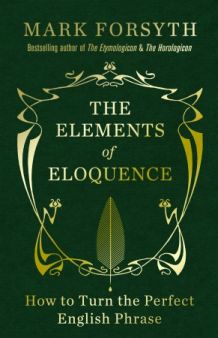- HOME
- INTRO TO THE FORUM
- USE AND MISUSE
- BADLY WRITTEN, BADLY SPOKEN
- GETTING
TO KNOW ENGLISH - PREPARING FOR ENGLISH PROFICIENCY TESTS
- GOING DEEPER INTO ENGLISH
- YOU ASKED ME THIS QUESTION
- ADVOCACIES
- EDUCATION AND TEACHING FORUM
- ADVICE AND DISSENT
- MY MEDIA ENGLISH WATCH
- STUDENTS' SOUNDING BOARD
- LANGUAGE HUMOR AT ITS FINEST
- THE LOUNGE
- NOTABLE WORKS BY OUR VERY OWN
- ESSAYS BY JOSE CARILLO
- Long Noun Forms Make Sentences Exasperatingly Difficult To Grasp
- Good Conversationalists Phrase Their Tag Questions With Finesse
- The Pronoun “None” Can Mean Either “Not One” Or “Not Any”
- A Rather Curious State Of Affairs In The Grammar Of “Do”-Questions
- Why I Consistently Use The Serial Comma
- Misuse Of “Lie” And “Lay” Punctures Many Writers’ Command Of English
- ABOUT JOSE CARILLO
- READINGS ABOUT LANGUAGE
- TIME OUT FROM ENGLISH GRAMMAR
- NEWS AND COMMENTARY
- BOOKSHOP
- ARCHIVES
Click here to recommend us!
READINGS IN LANGUAGE
This section features links to interesting, instructive, or thought-provoking readings about the English language and related disciplines. The selections could be anywhere from light and humorous to serious and scholarly, and they range widely from the reading, writing, listening, and speaking disciplines to the teaching and learning of English.
When you really have nothing to say but just need to say it well
For getting a much better handle on the English figures of speech, British writer Mark Forsyth’s The Elements of Eloquence (Icon Books, 208 pages) might just be your, uhm, cup of tea. Never mind that the book appears to go against the grain of this Forum’s long-running advocacy of plain and simple English. Indeed, as one reviewer of the book has ominously observed, Forsyth’s chief and admirable ambition is to demolish “the bleak and imbecile idea that the aim of writing is to express yourself clearly in plain, simple English using as few words as possible.”

That goal sounds every bit like a cockeyed denunciation of the ABC of writing that was furiously hammered into our heads in school—you know the drill, “A” for accuracy, “B” for brevity, and “C” for clarity. But then Forsyth’s brief is not about simplicity of language but about something else altogether—eloquence, or discourse marked by force and persuasiveness. Forsyth shows that there’s a higher level or variety of English that draws emotional or convincing power from figurative expressions and from rhetorical devices like—hold your breath—the chiasmus, litote, synecdoche, zeugma, and isocolon. They are known as the figures of speech, those expressions like the simile or metaphor that convey ideas more powerfully by explicit or implicit comparison of one thing with something else; in short, the figures of speech are a play of words meant to yield a heightened sense that transcends the surface meanings of those words.
One other valuable lesson to be gleaned from Forsyth’s book is that in the art of persuasion, we shouldn’t be so obsessed with the substance of what we want to say to the point of neglecting the importance of the style needed to express ourselves. At the extreme, in fact, The Elements of Eloquence demonstrates that in public speaking, as in the case of most cocktail or after-dinner speeches, we often don’t need to have anything to say—we simply need to say it well.
ABOUT THE AUTHOR:
Mark Forsyth is a British nonfiction writer whose work concerns the meaning and etymology of English words. His books and blogs have made him one of the UK’s best-known commentators on words. His book The Etymologicon was a Sunday Times number one bestseller and was followed by the similarly successful The Horologicon.
OTHER INTERESTING READINGS:
There’s a ghost in that book. In “Priceonomics: The Ghostwriting Business,” an article that came out in the Priceonomics.com website last December 3, 2013, Alex Mayyasi gives the lowdown on an open secret in publishing: that in any book content with a byline, the title of author is often more of an executive position rather than an indication of who wrote the words on the page. Mayyasi explains: “Ghostwriters exist for the same reason that Bill Gates doesn’t mow his own lawn: It’s just not worth his time. As the president of [a publishing group] put it to us: ‘The appeal is pretty clear. If you are an executive making $10 million a year, will you really stop working for two to three months to write a book?’”
Read Alex Mayyasi’s “The Ghostwriting Business” in Priceonomics.com now!
Crowdsourcing the English lexicon. In “A Lexicon of Instant Argot,” an article that appeared in the January 3, 2014 issue of The New York Times, Jenna Wortham reports on the evolution of Urban Dictionary as a crowdsourced online dictionary that lets anyone anywhere in the world contribute words and definitions. To date, Urban Dictionary has grown to over 7 million definitions of words, acronyms and phrases, and has been adding 2,000 definitions to its lexicon daily. By doing so, Wortham observes, the 1999 startup by then college freshman Aaron Peckham “has become the anthropologist of the Internet, taking the pulse of the web and capturing cultural moments in real time.”
Read Jenna Wortham’s “A Lexicon of Instant Argot” in The New York Times now!
Tracking linguistic shifts from big data. In “Technoporia: In a Scoreboard of Words, a Cultural Guide,” an article that came out in the December 7, 2013 issue of The New York Times, Natasha Singer reports that academic researchers can now tap into big data to conduct rigorous studies of linguistic shifts across decades or centuries. Using the Google Books Ngram Viewer—an outgrowth of the company’s efforts to scan the world’s books—centuries of word use can now be analyzed to examine the spread of scientific concepts, technological innovations, political repression, and even celebrity fame.
Click to read comments or post a comment
View the complete list of postings in this section
(requires registration to post)






